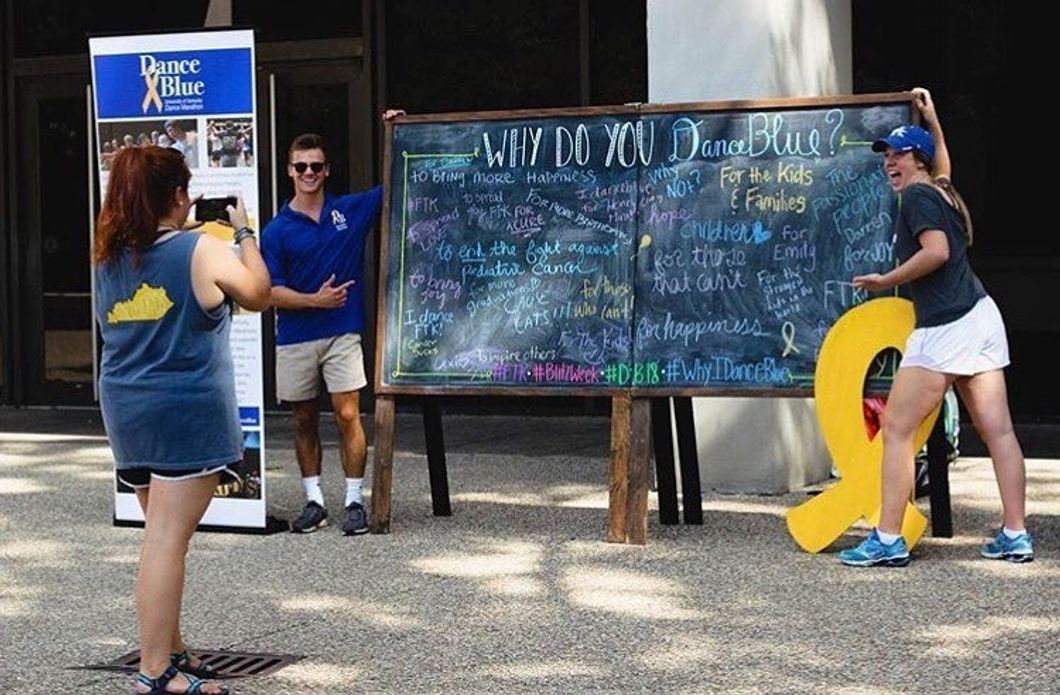You've definitely heard this one before "Get involved in college your freshman year!"
It's probably been phrased countless ways, though. "Go through sorority recruitment!" "Run for a seat in Student Government!" "Join a club or organization!" "Start volunteering!" "Become an RA!" "Apply for a position in the university newspaper!"
Get involved, get involved, get involved. It's berated into us at freshman orientation. There are flyers shoved in you face constantly. It may seem that the only reason that these organizations, and the university as a whole, want so badly for people to be "involved" on campus is so that they can boast about the number of clubs offered or use students as advertising for the school itself. It can seem like all these organizations want is our money. Honestly, it may seem like being "involved" on campus is just a catchphrase student recruiters use to pitch to high schoolers.
However, this word, "involved" actually represents something a lot more than bullet points on a resume or meetings to attend. Being involved in an organization, a volunteer group, a club or a team gives you a chance to test your ability to handle more than just your academic responsibilities, can provide you with connections, experience, and a portfolio, can help you find your true passions, and gives you friendships with people you might not have met otherwise.
By testing your own limits and signing up for a team, applying for a position, reaching out to a club to get involved, or simply put your name down on a list, you are trying something new, which is essential to growth, both socially and mentally. Once you graduate, after four years (or five) and move on to grad school or a "real-world" job, jugging your obligations becomes more than just a balancing act between having a social life and getting your assignments done. By having multiple obligations in college by being involved, to people other than just yourself, you are preparing yourself for the post-grad life. In addition, being "involved" on campus can give you connections that may turn into an internship or future job, getting you that much closer to where you want to be, and can give you practical experience for your future career as well.
Coming into college, many people start out in a major that they will eventually change, due to their interests in another major, or just realizing that the one they are currently in is not for them. Getting involved in organizations on campus can help you realize what you are truly interested in, and in turn help you figure out what you want to do in your future career, a question that many college students struggle with.
Lastly, being involved on your college campus in organizations which bring students together based on their interests, shared values, desire to help others, passion for politics or medicine can result in lasting friendships with people who may come from a completely different background than you. If you only engage with people that you are very similar to, you miss out on the enormously important opportunity that going to college presents: growth through collaboration. Becoming not just a well-rounded student but a well-rounded individual is a hugely important part of the college experience, and by choosing to seek out opportunities, growing alongside others, and continually making each other better students and citizens, campus involvement can shape who you are, and who you will become.








































